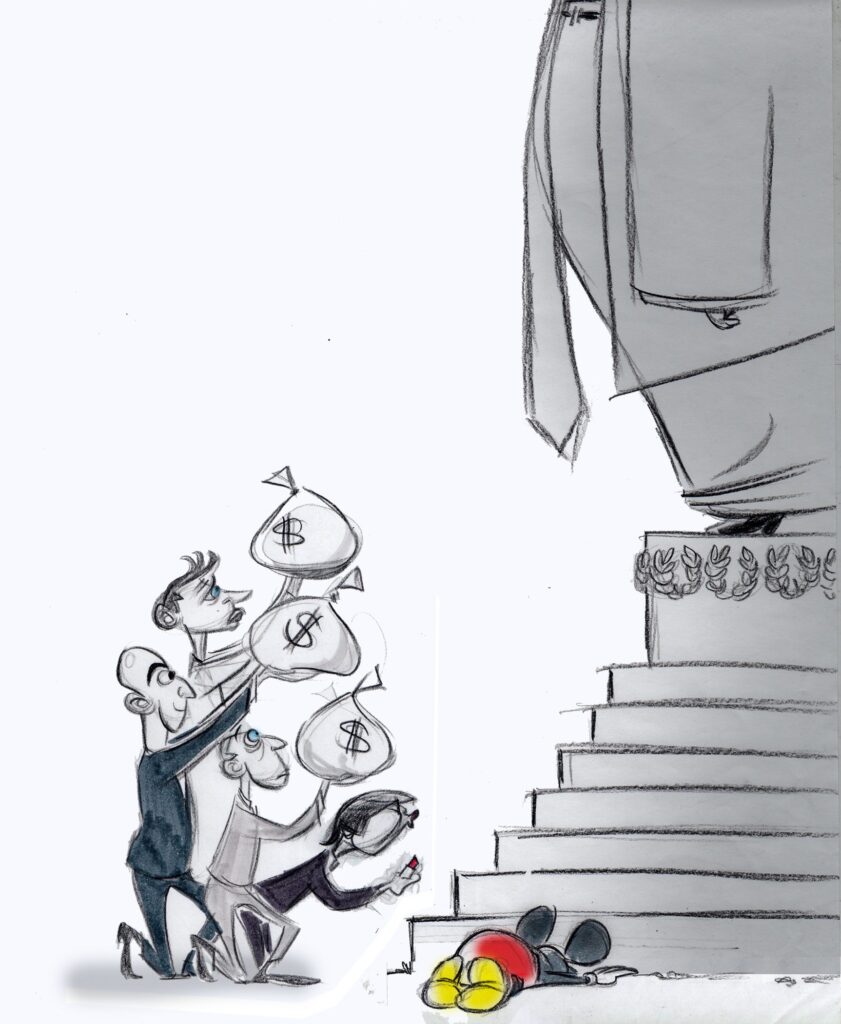Ann Telnaes, a Pulitzer Prize-winning political cartoonist for The Washington Post, has announced her resignation after one of her cartoons, depicting prominent tech and media executives kneeling before Donald Trump, was rejected.
Telnaes, who has worked with the Post since 2008, stated that this was the first time a cartoon of hers was rejected based on its target, calling the incident a “game changer” and warning of the implications for press freedom.
The cartoon, shared on Telnaes’s Substack post, portrayed Washington Post owner Jeff Bezos, Facebook and Meta founder Mark Zuckerberg, Disney’s Mickey Mouse (representing ABC News), and other business leaders bowing before a towering Trump. The criticism comes amid reports of billionaires with government contracts seeking to curry favor with the president-elect.

Telnaes expressed concern over the rejection, stating that while she had previously encountered feedback or requests for revisions, the rejection of this cartoon was based on her point of view. She argued this undermines the role of a free press.
Telnaes added that news organizations have a public obligation to foster free expression and should avoid compromising journalistic integrity in favor of corporate or political interests.
David Shipley, the Washington Post’s opinions editor, defended the decision, stating that the cartoon was rejected due to “repetition,” as the paper had recently published both a column and a satire on the same topic.
Telnaes emphasized the importance of editorial cartooning in holding powerful figures accountable and likened the rejection to a troubling trend. She noted that, as a former board member of Cartoonists Rights and an Advisory Board member for the Geneva-based Freedom Cartoonists Foundation, she has observed international cartoonists risking their safety to challenge power.
Her resignation comes at a time when the role of journalism in democratic societies is under scrutiny. Telnaes said she remains committed to exposing injustices through her work, even after leaving the Post, noting, “Democracy dies in darkness.”




